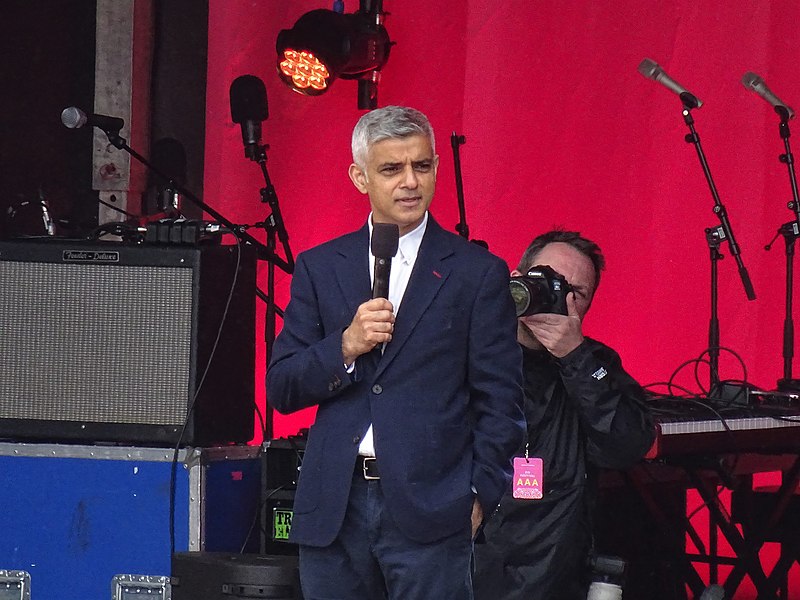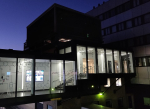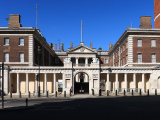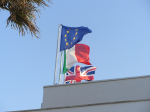
The Mayor of London, Sadiq Khan, has today hailed the importance of the capital’s creative economy, as new figures show that it is playing an increasingly significant role in supporting the
economy, with jobs growing by more than 200,000 in five years.
New research has revealed that one in five jobs in London is in the creative economy – increasing from one in six in 2016 when Sadiq became Mayor – and that the capital is contributing more than half of the UK’s entire creative industries economic output.
The capital’s world-leading creative industries have recovered strongly following the impact of the pandemic, but with challenges still facing the industries, the Mayor has warned Government that it must continue to back the sector with sufficient funding.
The new City Hall report ‘London’s Creative Industries – Sector deep dive’ has today revealed:
More than 1.1m jobs in London in 2021 was held by people employed in the ‘creative economy’, up from 882,000 in 2016. That means that one in five jobs (21.1 per cent) in London in 2021 was in the ‘creative economy’, up from 16.9 per cent in 2016. This includes everyone working in the creative industries, as well as those working in creative occupations in other sectors.
There were 795,500 jobs in London’s creative industries alone in 2021, accounting for one in seven (14.7 per cent) jobs in the capital. This is up from 468,400 jobs in 2010, which was one in ten (10.7 per cent).
Before the pandemic, the creative industries added £55bn to the economy – 11.5 per cent of the capital’s economic contribution, and up from 10.2 per cent in 2010, with London contributing over half of the UK’s creative industries economic output.
During the first year of the pandemic, the value of London’s creative industries fell less than the value of the London’s overall economic output.
Most sub-sectors of the UK’s creative industries have recorded higher than average growth between February 2020 to June 2023, including crafts, publishing, IT, software and computer services, museums, galleries and libraries and music, performing and visual arts.
Employment in the UK creative industries is expected to grow over the next decade, with 1.2m additional workers needed by 2030, primarily driven by IT, music and TV.
These findings follow a report from City Hall earlier this year that highlighted how the UK creative industries have outperformed the UK economy as a whole. It showed that the capital’s creative industries contributed £13bn in taxes in 2019/20 and supported businesses across the country through their supply chains, but that Government funding is ‘insufficient’ and that the most recent Arts Council England grants cuts were significant and damaging to organisations in the capital.
The Mayor is committed to doing all he can to support the capital’s creative industries as they deal with the ongoing impact of the pandemic, Brexit, the cost of living crisis and a reduction in Government funding. Last month, Sadiq joined with cultural leaders to launch London Creates – a campaign to celebrate London as the world’s most creative capital.
The Mayor is also investing more than £600m to create East Bank, a new culture and education powerhouse at Queen Elizabeth Olympic Park and establishing 12 Creative Enterprise Zones that will deliver 71,000 sqm of affordable creative workspace - the equivalent of 10 football pitches – support 800 creative businesses, deliver 500 jobs and help 5,000 young Londoners to enter the creative industries by 2026.
The Mayor of London, Sadiq Khan said: “Culture is the beating heart of our city and our creative industries not only help make London the greatest city in the world but help to drive our economy forward following the impact of the pandemic. They are a huge success story contributing tens of billions of pounds to our nation and supporting businesses across the country through their supply chains. But our creative industries still have significant challenges, including spiralling operational costs, Brexit bureaucracy and reductions in funding. I’m committed to doing all I can to support our creative businesses and continue to urge Ministers to provide sufficient support to help our creative industries drive economic growth and jobs as we build a better London for everyone.”
Eva Langret, Director, Frieze London, said: “This research shows that London is a global capital for the arts and has an infrastructure like no other. Our creative community is recognised at an international level for the vibrancy of its cultural diversity, as well as the depth and breadth of an eco-system that underpins the influence that we have in the world. The innovative edge of the city is unparalleled and continues to evolve, attested to by the new institutions and galleries that drive our creative spirit and the creative economy as a whole.”
Dr Jo Twist OBE, Chief Executive of (UK record labels association) the BPI, said:“London and creativity go hand in hand, and when the creative industries flourish – music high among them – so does our capital. We welcome the Mayor’s important recognition of the essential contribution they make to the London economy and to our daily lives. Whether you measure their impact commercially, including through increasing economic value, jobs and exports, or culturally in terms of the rich diversity and inclusivity they foster and the wonderful life-enhancing benefits they bring to us all, it becomes even more imperative that we optimise our support for the creative industries and create an environment in which they can thrive.”
Ben Evans, Director, London Design festival, and Executive Director, London Design Biennale, said: “With 1.1 million jobs in the wider creative economy, London can claim to be one of the biggest creative cities in the world. But in an increasingly competitive environment it needs to invest to maintain this position of leadership. This means investment in promotion, market access, integration of technologies, and recruitment of talent. In design, post covid recovery has been slowed by skills shortages made more acute by Brexit. This can be addressed by introducing a creative visa, enabling the best international talent to live and work here, alongside a rapid expansion of UK training and apprenticeship schemes. Creative talent will fuel London future prosperity.”
Leo Lawson-O'Neil, Founder, Eat Work Art said: “From musicians to local artists and fashion designers, the creative spaces we are part of in London are thriving. We are actually at 97 per cent occupancy at our Netil House studio hub in Hackney, and due to demand, we will be expanding and transforming a new cultural space nearby, Netil Corner. My favourite thing about London is the richness and diversity of our independent artistic communities and it is fantastic to see continued growth.” Photo by DAVID HOLT from London, England, Wikimedia commons.




































